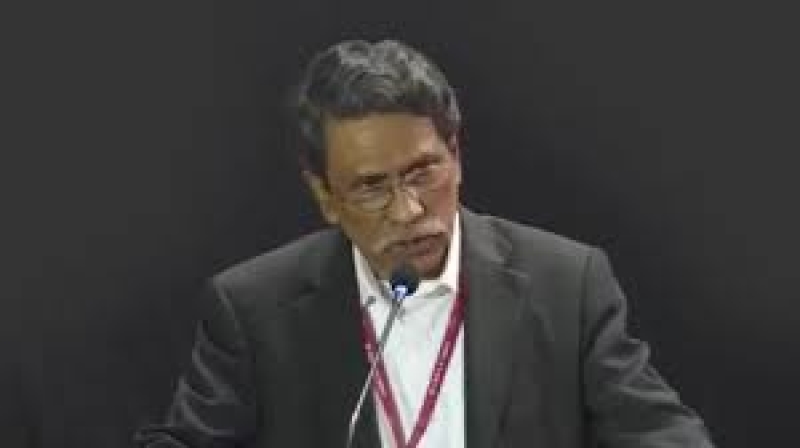- Bangladeshi Expats Cast 4.58 Lakh Postal Votes |
- IMF Forecasts Bangladesh GDP to Rebound to 4.7% in FY26 |
- Arab Allies Urge Restraint as Trump Presses Iran Talks |
- EC asks printing presses not to print election posters |
- Protect your votes, conspiracies still on: Tarique to voters |
Reform Commitment Clears Path for December Elections: Ali Riaz

Professor Dr. Ali Riaz, Vice-Chairman of the National Consensus Commission, expressed optimism that national elections in December are achievable, citing political parties’ commitment to necessary reforms. In an exclusive interview with BSS in Dhaka, Riaz emphasized that with the right political will, significant reforms are possible.
"I believe reform is not impossible, especially with the political parties' commitment. Many have been pessimistic, but I remain hopeful," Riaz said.
The academic, who has extensive experience in political science and international politics, highlighted that the push for elections isn't just from political parties, but from the people of Bangladesh, who have been deprived of voting rights for the past 17 years.
"This is an ideal moment," Riaz added. "It’s not only the political parties; the citizens are eager to vote."
He also pointed out that the interim government, led by Chief Adviser Professor Muhammad Yunus, is determined to avoid unnecessary delays. The seven-member National Consensus Commission, formed on February 13, aims to build a consensus on political, constitutional, and electoral reforms after extensive consultations with political parties, which began on February 15.
Riaz, who is also a former leader of the Constitution Reforms Commission, stressed that the commission’s first task will be to distribute the full reports of six reform commissions to the political parties. These commissions have already submitted their recommendations to the interim government.
While no specific deadline has been set, Riaz noted the urgency of completing the process. “We want meaningful discussions, not rushed decisions,” he said. He also noted that the commission has six months to reach consensus on the reforms.
The Consensus Commission will work with political parties to identify key proposals and prioritize those necessary for implementation, aiming for broad agreement before elections. Political parties will likely propose alternatives that align with their respective governance policies, Riaz explained.
Once consensus is reached, the commission plans to create a national charter, a guiding document for any future government. "This charter will serve as a roadmap for whoever holds power, ensuring that reforms are clear and agreed upon by all parties," Riaz said.
The commission also plans to publish the agreed-upon reforms on a dedicated website to increase transparency and engage citizens.
Riaz emphasized the importance of citizens' involvement, although the exact mechanism for public input is still being developed. "People have the right to know what reforms political parties are committing to," he said.
Regarding the speculated consensus on reforms, Riaz urged a forward-looking approach. "Let’s not dwell on the past," he stated. While Bangladesh has struggled with political consensus in the past, Riaz pointed to successful agreements like the caretaker government system as precedents.
The political climate is different now, with all parties recognizing the need for reforms due to the challenges of the last 16 years and the recent mass uprising. "No party is saying everything is fine. There is universal acknowledgment that reforms are needed," Riaz noted.
However, he acknowledged that political parties' reform priorities might differ, adding, “Our task is to facilitate discussions and find common ground.”
Riaz also discussed the issue of the Awami League, noting that while crimes against humanity must be addressed through judicial processes, banning the party is not part of the reform negotiations. He stated that such matters fall under the judicial process and are not for the commission to resolve.
On constitutional reforms, Riaz explained that the commission's recommendations require broad political support and cannot be imposed by executive orders. "We highlighted the articles that need change, but it’s up to the political parties to decide on the reforms and their implementation," he said.
Riaz emphasized that before discussing implementation, parties must first agree on the necessary reforms. "Let's decide what needs to be changed, then discuss how to implement it," he concluded.

